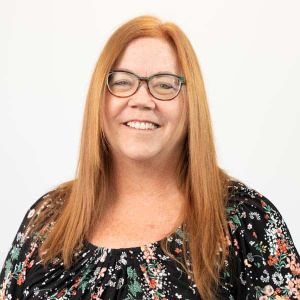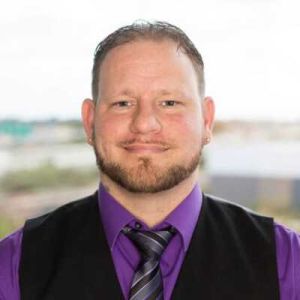








Guardian Recovery - Immersion
Verified Center
This provider's information has been quality-checked by Recovery.com's Research Team for accuracy and completeness, including center verification through appropriate third-party organizations.
Treatment Focus
This center treats substance use disorders and co-occurring mental health conditions. Your treatment plan addresses each condition at once with personalized, compassionate care for comprehensive healing.
Primary Level of Care
Offering intensive care with 24/7 monitoring, residential treatment is typically 30 days and can cover multiple levels of care. Length can range from 14 to 90 days typically.
Treatment Focus
This center treats substance use disorders and co-occurring mental health conditions. Your treatment plan addresses each condition at once with personalized, compassionate care for comprehensive healing.
Primary Level of Care
Offering intensive care with 24/7 monitoring, residential treatment is typically 30 days and can cover multiple levels of care. Length can range from 14 to 90 days typically.
Provider's Policy
Immersion Recovery Center offers free no-obligation insurance benefits checks. They most likely accept your health insurance plan. Medicaid and Medicare are not accepted at this location. However, you can call Guardian Recovery, the parent company for Immersion Recovery, to find out about our locations in NJ, ME & CO that accept Medicaid and Medicare from those states.
Guardian Recovery - Immersion
Guardian Recovery - Immersion
About Guardian Recovery - Immersion
Immersion Recovery Center (previously known as Bishop Health and Boca Detox Center) is a leader in substance use disorder treatment with two decades of experience providing a full continuum of care for clients and their families. They use a combination of evidence-based practices and holistic methods to provide an individualized recovery experience for each client. Clients will have the opportunity to engage in 12-Step facilitation, traditional talk therapy, life skills training, recreational outings, yoga, and much more. Immersion Recovery Center is part of Guardian Recovery.
Customized Care in Each Phase of Recovery
Immersion Recovery offers medical detox, residential care, a partial hospitalization program (PHP), an intensive outpatient program (IOP), virtual options, and aftercare planning using a three-phase approach.
Phase 1 focuses on detox, residential care, and stabilization. Phase 2 gets clients motivated for recovery via the PHP (day treatment), a full-day program with the option for clients to live at home or in a sober living residence.Phase 3 centers around reintegration, outpatient care, and sober living if desired.
These phases can stretch out to a year of treatment, or they can shorten for a speedier track to recovery. The time spent in each phase is up to each client and their clinical team. In all levels of care, clients participate in evidence-based therapies such as motivational interviewing, dialectical behavioral therapy (DBT), and eye movement desensitization and reprocessing (EMDR).
Family-Wide Recovery and Aftercare
Immersion Recovery holds family workshops and family therapy, helping families become the recovery allies for their loved ones. Psychoeducational and healing lectures bring clarity and hope. Clients can enjoy this aspect of treatment in residential care, day treatment (PHP), and Immersion’s outpatient services. Immersion Recovery Center has robust aftercare planning for long-lasting recovery. Alumni engage in 12-Step meetings and individual and group therapy. They organize regular group meet-ups and recovery-friendly activities to support alumni. Immersion Recovery also offers a comprehensive list of resources for those in early recovery.
Luxurious and Comprehensive Care
Located in Delray Beach, Florida, Immersion Recovery Center offers shared and private bedrooms, therapy rooms, a large common area, a communal dining area, and a lounge for relaxing and socializing. Clients can enjoy grilling on the outdoor barbecue, playing volleyball in the backyard, and having movie nights in the living room. Immersion Recovery offers holistic healing through nutrition therapy, yoga therapy, recreation therapy with snorkeling, kayaking, paddle boarding, hiking, art, and music.

Highlights from the Center
Highlights
These highlights are provided by and paid for by the center.
Perfect for Professionals
Medically Assisted Detox
Master's and Doctoral Level Therapists
Private Rooms Available
Center Overview
Treatment Focus
This center treats substance use disorders and co-occurring mental health conditions. Your treatment plan addresses each condition at once with personalized, compassionate care for comprehensive healing.
Joint Commission Accredited
The Joint Commission accreditation is a voluntary, objective process that evaluates and accredits healthcare organizations (like treatment centers) based on performance standards designed to improve quality and safety for patients. To be accredited means the treatment center has been found to meet the Commission's standards for quality and safety in patient care.

Guardian Recovery - Immersion
Insurance Accepted
Cash Pay Rates
Estimated Cash Pay Rate
Center pricing can vary based on program and length of stay. Contact the center for more information. Recovery.com strives for price transparency so you can make an informed decision.




More Guardian Recovery Network Locations
Recovery.com Verified Listing
Recovery.com verified that the name, location, contact information and license to operate for this treatment provider are valid and up-to-date.

Joint Commission Accredited

Licensed by Florida DCF
Recovery.com is an independent, third-party mental health resource. Verification does not imply endorsement and does not guarantee the quality of treatment services.
Meet Your Care Team

Dr. Tamer Wassef
Medical Director
MD

Anna Parker
National Director Of 12 Steps

Kenny Silver
Vice President of Treatment Services

Leslie Rhinebarger
Director of Nursing

Tina Hepworth
Clinical Director
LCSW

Anna Marie Barrett
Clinical Director
LCSW, CYT

Julie Kelly
ARPN

Julie Donahue
ARNP

Michelle Quilter
Director of Clinical Case Management
Psy.D., CASAC, DBT-LBC, CSOTP

LaRae Burset
Family Therapist
RCSWI

Nicole Patalano
Primary Therapist
MS, LMHC

Anastasia Sabga
Primary Therapist
MSW, RCSWI

Amanda Beard
Medical Service Coordinator

Masud Ahmad
ARNP

Todd Hoher
Family Therapist
CAC

Idil Gursoy,
Primary Therapist
LMHC
Your Care Options
Specializations
Alcohol
Using alcohol as a coping mechanism, or drinking excessively throughout the week, signals an alcohol use disorder.
Co-Occurring Disorders
A person with multiple mental health diagnoses, such as addiction and depression, has co-occurring disorders also called dual diagnosis.
Drug Addiction
Drug addiction is the excessive and repetitive use of substances, despite harmful consequences to a person's life, health, and relationships.
Executives
Executive treatment programs typically directly support the needs of people who manage businesses and may provide flexible schedules and office space to allow work during treatment.
Opioids
Opioids produce pain-relief and euphoria, which can lead to addiction. This class of drugs includes prescribed medication and the illegal drug heroin.
Prescription Drugs
It's possible to abuse any drug, even prescribed ones. If you crave a medication, or regularly take it more than directed, you may have an addiction.
Professionals
Busy, high-ranking professionals get the personalized treatment they need with greater accommodations for work, privacy, and outside communication.
Who We Treat
Executives
Executive treatment programs typically directly support the needs of people who manage businesses and may provide flexible schedules and office space to allow work during treatment.
LGBTQ+
Addiction and mental illnesses in the LGBTQ+ community must be treated with an affirming, safe, and relevant approach, which many centers provide.
Professionals
Busy, high-ranking professionals get the personalized treatment they need with greater accommodations for work, privacy, and outside communication.
Treatment Services
Day Treatment
In a PHP, patients live at home but follow an intensive schedule of treatment. Most programs require you to be on-site for about 40 hours per week.
Detox
Detox fully and safely removes toxic substances from the body, allowing the next steps in treatment to begin with a clean slate.
Intensive Outpatient Program
In an IOP, patients live at home or a sober living, but attend treatment typically 9-15 hours a week. Most programs include talk therapy, support groups, and other methods.
Outpatient
During outpatient rehab, patients attend a structured treatment program while continuing to live at home.
Residential
In a residential rehab program, patients live onsite, with access to daily treatment and 24-hour care. An average stay is 30-90 days.
Approaches
Evidence-Based
A combination of scientifically rooted therapies and treatments make up evidence-based care, defined by their measured and proven results.
Family Involvement
Providers involve family in the treatment of their loved one through family therapy, visits, or both–because addiction is a family disease.
Medical
Medical addiction treatment uses approved medications to manage withdrawals and cravings, and to treat contributing mental health conditions.
Twelve Step
Incorporating spirituality, community, and responsibility, 12-Step philosophies prioritize the guidance of a Higher Power and a continuation of 12-Step practices.
Therapies
1-on-1 Counseling
Patient and therapist meet 1-on-1 to work through difficult emotions and behavioral challenges in a personal, private setting.
Meditation & Mindfulness
A practiced state of mind that brings patients to the present. It allows them to become fully aware of themselves, their feelings, and the present moment.
Online Therapy
Patients can connect with a therapist via videochat, messaging, email, or phone. Remote therapy makes treatment more accessible.
Mindfulness Therapy
This ancient practice can be mental, emotional, and even spiritual. In meditation, you focus your attention on the present moment without judgement.
Art Therapy
Visual art invites patients to examine the emotions within their work, focusing on the process of creativity and its gentle therapeutic power.
Equine Therapy
Guided interactions with trained horses, their handler, and a therapist can help patients improve their self-esteem, trust, empathy, and social skills.
Experiential Therapy
With this approach, patients heal by doing. Therapists help patients process difficult emotions to speak, using guided activities like art or dance.
Conditions We Treat
Grief and Loss
Grief is a natural reaction to loss, but severe grief can interfere with your ability to function. You can get treatment for this condition.
Anger
Although anger itself isn't a disorder, it can get out of hand. If this feeling interferes with your relationships and daily functioning, treatment can help.
Anxiety
Anxiety is a common mental health condition that can include excessive worry, panic attacks, physical tension, and increased blood pressure.
Bipolar
This mental health condition is characterized by extreme mood swings between depression, mania, and remission.
Burnout
Burnout entails mental and physical exhaustion, and leads to a severe lack of fulfillment. This condition is often caused by overwork.
Chronic Pain Management
Long-term physical pain can have an affect on mental health. Without support, it can also impact your daily life and even lead to addiction.
Codependency
Codependency is a pattern of emotional dependence and controlling behavior. It's most common among people with addicted loved ones.
Stress
Stress is a natural reaction to challenges, and it can even help you adapt. However, chronic stress can cause physical and mental health issues.
Substances We Treat
Alcohol
Using alcohol as a coping mechanism, or drinking excessively throughout the week, signals an alcohol use disorder.
Benzodiazepines
Benzodiazepines are prescribed to treat anxiety and sleep issues. They are highly habit forming, and their abuse can cause mood changes and poor judgement.
Chronic Relapse
Consistent relapse occurs repeatedly, after partial recovery from addiction. This condition requires long-term treatment.
Co-Occurring Disorders
A person with multiple mental health diagnoses, such as addiction and depression, has co-occurring disorders also called dual diagnosis.
Cocaine
Cocaine is a stimulant with euphoric effects. Agitation, muscle ticks, psychosis, and heart issues are common symptoms of cocaine abuse.
Drug Addiction
Drug addiction is the excessive and repetitive use of substances, despite harmful consequences to a person's life, health, and relationships.
Ecstasy
Ecstasy is a stimulant that causes intense euphoria and heightened awareness. Abuse of this drug can trigger depression, insomnia, and memory problems.
Heroin
Heroin is a highly addictive and illegal opioid. It can cause insomnia, collapsed veins, heart issues, and additional mental health issues.
Psychedelics
Hallucinogenic drugs—like LSD—cause euphoria and increased sensory experiences. When abused, they can lead to depression and psychosis.
Languages
Aftercare
Care Designed for Your Needs
Personal Amenities
Amenities
Special Considerations
Executive Program
Addiction and mental health treatment for executives typically involves high discretion, greater technology access, and more private, 1-on-1 care.
Flexible technology policies
Centers with flexible technology policies allow professionals to stay in touch with work and give patients a greater sense of connection and normalcy.
Gender-specific groups
Patients in gender-specific groups gain the opportunity to discuss challenges unique to their gender in a comfortable, safe setting conducive to healing.
Activities
Yoga
Yoga is both a physical and spiritual practice. It includes a flow of movement, breathing techniques, and meditation.
Off-Site Activities
Off-Site Amenities

Learn More About the Center
Read an Alumni Experience
Leah, an Immersion Recovery alumni, shares her story about recovery and how treatment at Immersion gave her hope.
Detox Services
Learn what to expect during detox at Immersion Recovery.
What to Expect at Immersion Recovery
Learn more about the admissions process and what to expect during treatment.
Intervention Services
Discover more about Immersion’s professional intervention services, including the common steps of an intervention.
What people are saying
Treatment
4.9
Accommodations
4.9
Food & Nutrition
5.0
Value
4.8
Pros
- Supportive Aftercare (5)
- Beautiful Location (4)
- Very Informative (3)
- Treated My Loved One With Respect (3)
Judah
Treatment in 2022 • (90 days) • Reviewed 12/01/22
Former Client
•Real Estate Development
•South Florida
Lisa Chirichella
Treatment in 2020 • (90 days) • Reviewed 11/30/22
Former Client
•Claims Adjuster
•Boynton Beach, Florida
Peter C
Treatment in 2017 • (90 days) • Reviewed 03/21/23
Loved One of a Former Client
•Manhattan
John Ca
Treatment in 2018 • (90 days) • Reviewed 03/21/23
Loved One of a Former Client
•Connecticut
Christine M
Treatment in 2018 • (90 days) • Reviewed 03/21/23
Loved One of a Former Client
•Rhode Island





